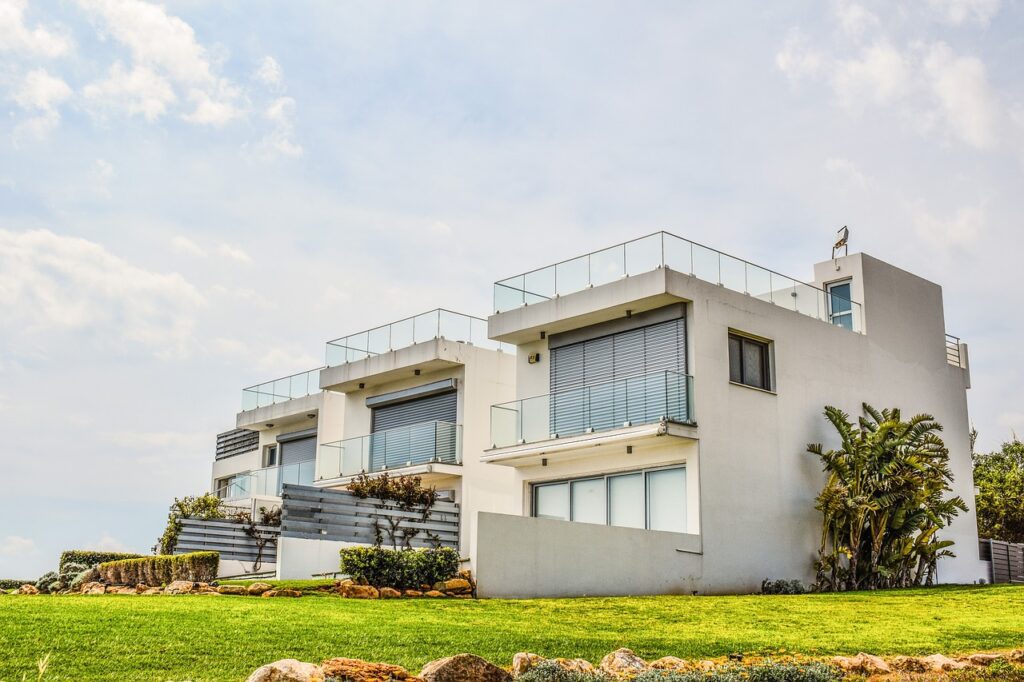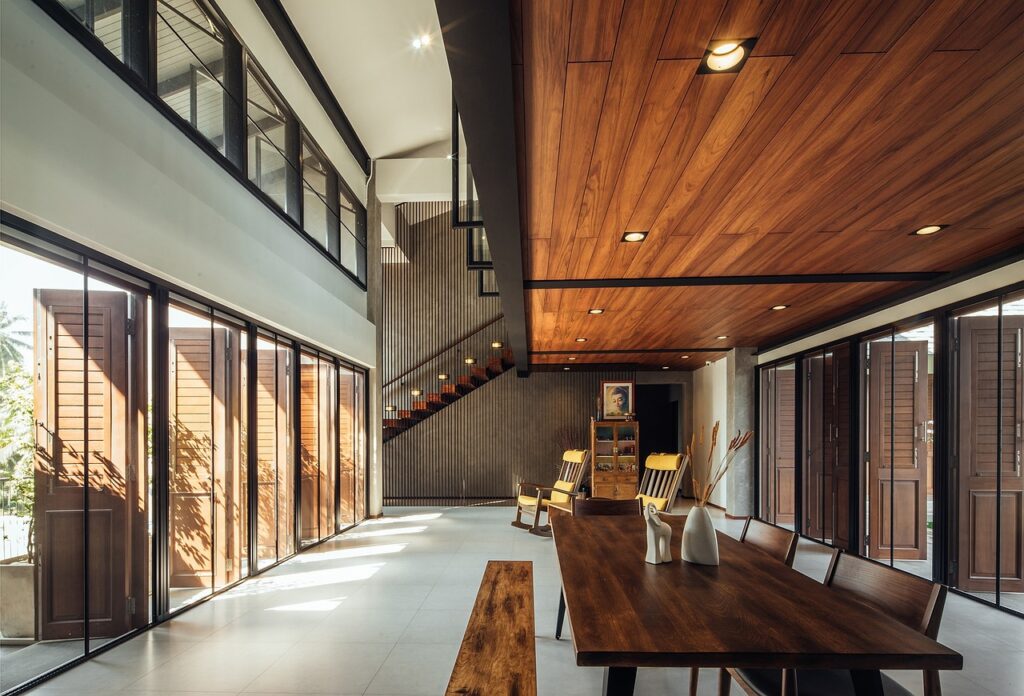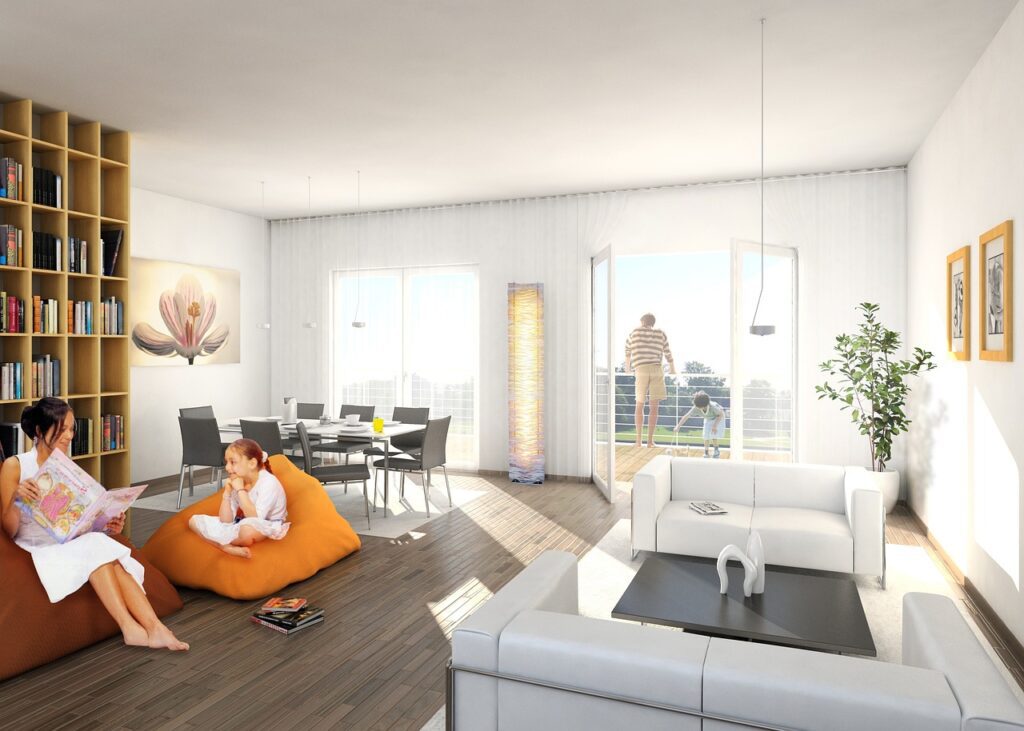In the world of property management, one of the most important decisions for villa and rental property owners is choosing between vacation rentals or long-term rentals. At first glance, vacation rentals might seem more appealing due to the potential for higher short-term profits and the excitement of hosting travelers from around the globe. However, as property owners navigate the complexities of managing their investments, many are discovering the significant advantages of long-term rentals as a more stable, reliable, and often less stressful approach.
Choosing long-term rentals provides more than just a steady, predictable income—it can dramatically reduce the time and effort needed to manage the property. For owners seeking both financial stability and a manageable workload, long-term rentals offer a sustainable way to maximize the value of their investment without the constant turnover and uncertainty that often comes with short-term lets.
In this article, we’ll dive into the key benefits of long-term rentals over vacation rentals, and why this option might be the smarter choice for property owners looking for a consistent return on investment and a stress-free management strategy.
Consistent and Predictable Income
One of the greatest advantages of choosing long-term rentals over vacation rentals is the assurance of a consistent and predictable income. While vacation rentals can offer high profits during peak tourist seasons, they are also highly susceptible to seasonal fluctuations and market changes. Long-term rentals, on the other hand, provide property owners with a reliable monthly income, creating financial stability and reducing the uncertainty that comes with short-term rentals.
By having tenants committed for extended periods, typically six months to a year or more, property owners can enjoy steady cash flow without the constant need to secure new guests, which is often the case with vacation rentals. For those considering a switch from vacation to long-term rentals, the National Association of Realtors offers valuable insights on trends and best practices in the rental market, providing property owners with data to inform sustainable investment decisions.

Reduced Vacancy Rates
A common challenge for vacation rental owners is dealing with vacancy periods, especially during the off-season when tourism slows down. These vacancies can leave the property sitting empty for weeks or even months, leading to financial uncertainty and gaps in income. For those depending on regular income from their property, this unpredictability can be stressful.
In contrast, long-term rentals virtually eliminate this problem by offering greater occupancy stability. Tenants typically sign leases for six months, a year, or even longer, meaning that the property remains occupied for extended periods. This provides owners with the peace of mind that their property is continuously generating income without the constant need to fill vacancies between guest stays. Property owners can reduce expenses and simplify management by reducing the need for frequent tenant turnover. According to the U.S. Department of Housing and Urban Development, long-term rentals often result in stronger tenant relationships, leading to more reliable occupancy and lower maintenance costs.
The reduced risk of vacancy gaps makes long-term rentals especially attractive for property owners seeking reliable returns and minimal management during the year.

Easier Financial Planning
Another significant benefit of opting for long-term rentals is the ease of financial planning. With fixed monthly rent payments, property owners have a clear, predictable idea of their income, making it simpler to plan for recurring expenses such as maintenance costs, mortgage payments, property taxes, and even future upgrades.
In contrast, vacation rentals are often subject to unpredictable income streams, with revenue peaking during high-demand seasons and dwindling during the low season. This fluctuation can make it difficult to budget, leading to unexpected cash flow shortages. With long-term rentals, the steady rent payments help property owners maintain financial stability, ensuring they can meet their obligations and reinvest in their property if necessary.
This consistency also provides a more secure return on investment (ROI), making long-term rentals a more strategic option for those looking to minimize risk while maximizing steady income over time.
Less Time-Consuming Property Management
One of the key advantages of opting for long-term rentals over vacation rentals is the significantly lower time commitment involved in managing the property. With vacation rentals, especially in popular destinations, property owners often find themselves overwhelmed by the demands of frequent guest turnovers, booking management, and handling day-to-day guest concerns. This constant cycle of work can be exhausting, particularly for those managing the property themselves or without dedicated staff.
Long-term rentals, however, require far less ongoing attention. Once a suitable tenant is in place, the need for constant interaction, cleaning, and advertising is dramatically reduced. This allows property owners to enjoy a more hands-off approach, freeing up their time to focus on other priorities or investments.
Fewer Turnovers
One of the main reasons long-term rentals are easier to manage is the lower turnover rate compared to vacation rentals. With short-term stays, guests may book a property for just a few days or weeks, requiring property owners to clean, prepare, and manage the property after each guest. This frequent turnover means constantly marketing the property, securing new bookings, and handling guest check-ins and check-outs. The result is a time-intensive and sometimes stressful process.
In contrast, long-term tenants often sign leases for six months to a year or more, which drastically reduces the need for frequent tenant replacement and property preparation. With fewer turnovers, the property stays occupied for longer periods, and the regular cycle of preparing the home for new tenants becomes a rare occurrence rather than a daily task. This not only saves time but also reduces the stress of constantly finding new tenants or dealing with unoccupied property periods.
Reduced Wear and Tear
Another benefit of long-term rentals is the significant reduction in wear and tear on the property. With vacation rentals, the frequent guest turnovers lead to increased use of the property’s amenities, furniture, and appliances. Each new set of guests typically requires thorough cleaning, which adds extra strain on the property’s furnishings and systems. Over time, this constant cycle of use and cleaning accelerates the deterioration of the property, resulting in higher maintenance costs and the need for more frequent repairs or replacements.
With long-term tenants, however, the property experiences less intense usage. Tenants who stay for longer periods tend to settle into the home, treating it with more care and respect as it becomes their personal living space. This results in fewer maintenance requests and less strain on the property, ultimately lowering the overall cost of upkeep. By having tenants who feel more responsible for maintaining the home in good condition, long-term rentals offer property owners a cost-effective solution to maintaining the longevity of their investment.
In summary, long-term rentals not only save time by reducing the need for constant management but also preserve the quality of the property, making it a more sustainable option for owners seeking a lower-maintenance rental strategy.

Lower Operating Costs
While vacation rentals can indeed command higher nightly rates, they often come with a significant increase in operating costs that can quickly erode profits. From the constant need for cleaning services to frequent marketing efforts, the expenses involved in managing a vacation rental can add up. In contrast, long-term rentals tend to have much lower ongoing costs, making them a more financially efficient option for property owners. By minimizing expenses like marketing, cleaning, and maintenance, long-term rentals help property owners maximize their profit margins and reduce the stress associated with frequent turnover.
Savings on Marketing and Listings
Vacation rentals require constant visibility to remain competitive in a crowded market. This means regularly paying for listings on vacation rental platforms such as Airbnb, Booking.com, or VRBO. Additionally, many owners invest in digital marketing campaigns to promote their property and ensure a steady stream of bookings. These costs can become significant over time, particularly if the property is in a seasonal market where demand fluctuates.
On the other hand, long-term rentals have far fewer marketing expenses. Once a tenant signs a lease, the need for advertising disappears, and the property remains occupied for months or even years at a time. Marketing and listing efforts are typically only required when the lease ends, making the advertising costs of long-term rentals minimal in comparison. This results in significant savings, as property owners are not continuously paying for ads or promotions to keep their rental booked.
Less Frequent Cleaning and Maintenance
Another area where long-term rentals shine in terms of cost savings is the reduced need for cleaning and maintenance. In a vacation rental, the property must be thoroughly cleaned after every guest departs, which means regular cleaning fees. Depending on the frequency of bookings, these cleaning costs can quickly add up, especially during peak travel seasons when guest turnover is high.
Stronger Tenant Relationships
One of the significant advantages of long-term rentals is the opportunity to build stronger relationships with tenants. Unlike vacation rental guests who stay for only a few days or weeks, long-term tenants often develop a deeper sense of responsibility toward the property. They treat it more like their home, leading to better care of the space and fewer day-to-day management issues for property owners. This creates a smoother management experience where both parties benefit from stability and mutual respect.
Developing these positive relationships can lead to greater tenant satisfaction, fewer disputes, and a more comfortable environment for everyone involved. The trust and communication built between owner and tenant often result in fewer complaints, quicker problem resolution, and overall better maintenance of the property.
Better Communication and Reliability
Long-term tenants bring a higher level of communication and reliability. Since they are committed to staying for extended periods, tenants become more familiar with both the property and the landlord. This familiarity allows for streamlined communication, as tenants are more likely to report issues promptly and work collaboratively to solve problems. As a result, property owners can address concerns more efficiently, reducing the risk of small problems escalating into larger, costlier repairs.
In contrast, managing vacation rentals often requires immediate attention. Short-term guests may expect quick responses to issues, such as malfunctioning amenities or questions about the property, which can add stress to the property owner or manager. The urgency of maintaining high guest satisfaction for each stay can make it difficult to manage multiple tasks simultaneously. With long-term tenants, communication is more predictable and manageable, reducing the need for constant, high-stakes interactions.

Potential for Long-Term Tenancy
A satisfied long-term tenant is far more likely to renew their lease, which is a tremendous benefit for property owners. Long-term tenancies reduce the hassle and expense of finding new tenants, conducting background checks, and marketing the property. Not only does this save time, but it also helps maintain consistent income by ensuring that the property remains occupied without the risk of vacancies.
By fostering positive relationships and providing a well-maintained living environment, property owners can significantly improve tenant retention rates. This reduces tenant turnover, leading to longer occupancy periods and minimizing the need for frequent tenant searches. The result is a more stable income stream and a lower risk of unoccupied periods, ensuring that the property continues to generate consistent returns.
Partnering with Heveatecture for Long-Term Rental Success
Managing a long-term rental property is about more than just securing tenants and collecting rent—it’s about maintaining the value, functionality, and appeal of the property over time. This is where Heveatecture becomes an invaluable partner. With a commitment to sustainable design and long-term property management solutions, Heveatecture goes beyond architecture, offering full support to property owners who want to maximize the potential of their investments.
Expertise in Sustainable Property Design
Heveatecture’s expertise in sustainable villa design ensures that your property is built or renovated with longevity in mind. By using eco-friendly materials and integrating energy-efficient systems, your villa not only appeals to environmentally conscious tenants but also reduces maintenance costs in the long run. These thoughtful design choices enhance the durability and marketability of your property, making it an attractive option for long-term renters seeking comfort and sustainability.
Comprehensive Property Management Solutions
Beyond construction, Heveatecture provides property management support tailored to long-term rentals. They help property owners navigate the often-complex challenges of maintaining a tropical property. From regular inspections and maintenance scheduling to ensuring compliance with local regulations, Heveatecture’s holistic approach minimizes the workload on owners and ensures that the villa remains in pristine condition for long-term tenants.
Enhancing Tenant Satisfaction and Retention
By partnering with Heveatecture, property owners benefit from their expertise in tenant satisfaction. With beautifully designed, functional spaces and efficient property management, long-term tenants are more likely to extend their leases. Heveatecture’s attention to detail in design and maintenance directly contributes to a positive living experience, reducing tenant turnover and ensuring a stable, reliable income for owners.
In summary, choosing Heveatecture as your partner in managing long-term rentals offers property owners peace of mind, knowing that their villa is not only designed for lasting appeal but also managed with expert care. This partnership helps maximize the value of your investment and ensures a successful and stress-free long-term rental strategy.
Conclusion
While vacation rentals can generate high short-term profits, long-term rentals offer a more stable and manageable alternative. The benefits of long-term rentals—including consistent income, reduced management efforts, lower operating costs, and stronger tenant relationships—make them an attractive option for property owners seeking stability and lower stress.
Focusing on long-term tenants not only ensures a steady income but also fosters a sense of community and responsibility, leading to fewer issues and more reliable care of the property. For property owners looking to maximize their return on investment while minimizing the challenges of managing high-turnover rentals, long-term rentals provide a practical, sustainable solution.
10 FAQ for Villa Management and Long-Term Rentals
Long-term rentals offer a stable, predictable income and require less day-to-day management than vacation rentals, which have higher turnover and operating costs.
While vacation rentals can bring in more income per night, long-term rentals provide steady, consistent income without the seasonal fluctuations and vacancies that vacation rentals experience.
Yes, managing a long-term rental is generally easier due to fewer turnovers, less frequent cleaning, and a more stable tenant base.
Yes, long-term rentals have lower operating costs since there are fewer cleaning and maintenance requirements, as well as reduced marketing expenses compared to vacation rentals.
Tenants are typically required to pay a security deposit, which covers any damages beyond normal wear and tear. Additionally, long-term tenants often take better care of the property than short-term vacation guests.
Long-term rentals have tenants who sign leases for several months or years, ensuring that the property remains occupied and generates consistent income, unlike vacation rentals with short-term stays.
Areas with good infrastructure, proximity to schools, shopping, and employment hubs tend to attract long-term tenants. Less tourist-heavy regions might also be preferable for long-term renters.
Some platforms, like Airbnb, offer options for both short-term and long-term rentals. However, specialized real estate agencies or long-term rental sites may be better suited for attracting tenants.
A typical lease for long-term rentals in Koh Samui is usually 6 to 12 months, with the possibility of renewal.
Yes, if you’re currently managing a vacation rental, you can transition to a long-term rental model by adjusting your marketing, screening for long-term tenants, and setting appropriate lease terms.
